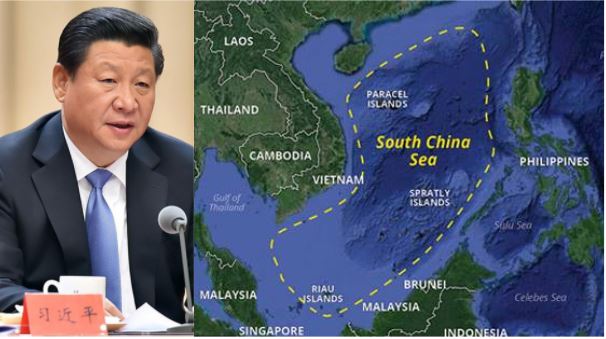The events related to China for a few weeks seem to signal a retreat from Beijing to de-escalate the tensions that it had created by aggressive posturing against its neighbours and wolf warrior diplomacy. Be it the visit of Chinese Foreign Minister to Japan and South Korea or the call from Xi Jinping to Angela Merkel. The latest is, Beijing shying away from establishing the Air Defense Identification Zone (A.D.I.Z) in the South China Sea to not further aggravate, already tensed situation in the South China Sea with its ASEAN neighbours.
All the ASEAN countries with assets and interests in the South China Sea have gone from cooperating with China to ease the tensions to getting ready for any escalation of tensions. Philippines and Vietnam have been at the forefront of countering the China challenge. Vietnam has had bilateral talks with Japan and agreed to buy military equipment from Tokyo. Whereas, the Philippines has shown greater interest in buying Brahmos missiles. The USA has approved the sale of the Scan Eagle Drone System, which includes 100 wire-guided missiles, 12 thermal imaging systems, two dozen 500-pound bombs, and a reconnaissance drone system worth $14.79 million, as per the US State Department report.
These actions by South-East Asian nations have been sustainably undertaken by the major ASEAN countries and given the reaction by China to stay away from establishing ADIZ, implies that it is under pressure. In a commentary released by Beijing-based think tank, SCS Strategic Situation Probing Initiative, it said that the international perception that China would set up an ADIZ over the disputed waters – as it did in the East China Sea seven years ago – was a “misinterpretation”. The commentary can be construed as a method by Beijing to douse the fire of mistrust and vulnerability that has only been increasing in size among the neighbours of China.
The existing AIDZ in the East China Sea has been a matter of concern and animosity between China and Japan, and the possibility of China building one in the artificial Islands of South China Sea means, that Chinese hegemony in the South China Sea will boost immensely. An air defence identification zone is airspace over a typically undisputed area of land or water in which the monitoring and control of aircraft are performed in the interests of national security, however, any attempt of creating it in the South China Sea will only hasten the aggressive responses from the major ASEAN countries. It becomes all the fishier as the concept is not defined or regulated by any international treaty or agency and thus cannot be challenged internationally.
ASEAN has been too cautious of Chinese designs, and the establishment of the quad as a counterweight to China has given a breathing space for the member countries. ASEAN member countries have been non complying every time China makes an offer to create a code-of-conduct in the South China Sea. China wants them to come to the discussion table alone and have no third party involved, however, ASEAN members know that it will be suicidal to not let other countries have a say as it will exponentially improve the case of China, and thus, they stay unflinching to talk about code-of-conduct without involving other countries.
Thus, these actions by ASEAN and further increasing closeness with quad members have made China vary of its approach to its neighbours in the south. Given the isolation, China faces, it has been forced to halt its designs in the South China Sea and relent to the aggressive ASEAN neighbours.








